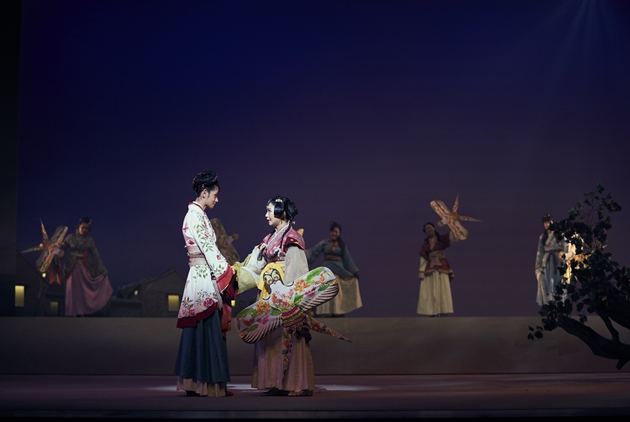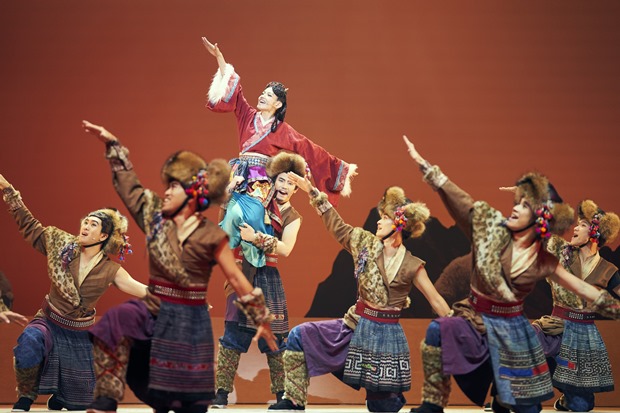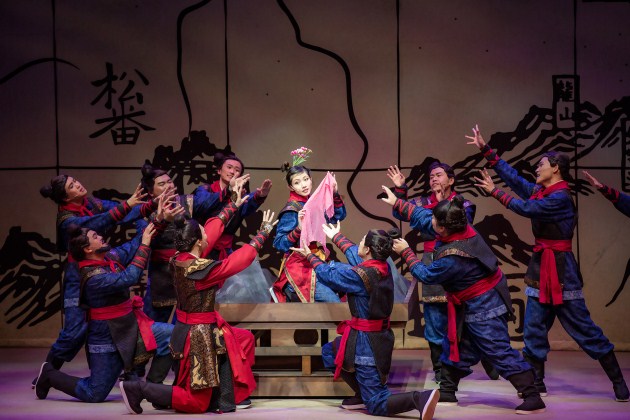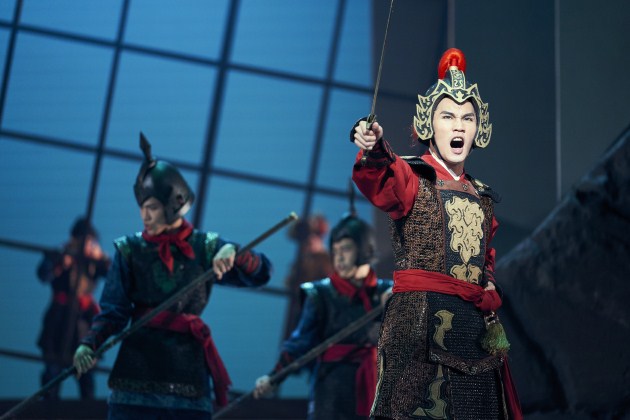Did Mulan Really Join the Army out of Filial Piety?

Source:Studio M
Taiwanese singers Nana Lee Chien-na and Judy Zhou Ding-wei, who both became famous through the Taiwanese “One Million Star” talent contest TV show, play the lead roles in a new pop version of the original Chinese-language musical Mulan. With their powerful vocals, the pair brings to life a version of Mulan that casts the legendary devoted daughter in a somewhat different light. Playwright Tsai Pao-chang, director of the modern theater troupe Tainaner Ensemble, and composer Owen Wang, founder of theater company Studio M, add moments of laughs and tears, stemming from contemporary gender role issues.
Views
Did Mulan Really Join the Army out of Filial Piety?
By Chia-hui Si-TuFrom CommonWealth Magazine (vol. 651 )
The story of Mulan, the most famous heroine in Chinese history, is returning to the stage in Taipei. Mulan The Musical uses plenty of comic elements, turning gender stereotypes and historical imagination on their head, to interpret the life of Mulan, the girl who posed as a man to join the army on behalf of her ailing, elderly father. This latest version features much stronger pop music characteristics, making the musical more appealing to a younger crowd.
 Image: Studio M
Image: Studio M
“Following the army on behalf of my father is not what I want; my soul wants to fly. I want to fly, to gracefully fly forward. I fly, bravely pushing straight ahead is what I want…” After nine years on the road, Mulan The Musical returns to the National Theater in Taipei with an ensemble of 26 actors and 17 musicians.
Since its Taipei debut in 2009, the musical has been performed in various locations abroad, including most recently 36 performances during a two-month period in Singapore in late 2016 and early 2017. This August, the model female heroine will again saddle her horse to go to war in a performance that is as hilariously funny as previous versions but with a much stronger dose of pop music.
Composer and music director Wang, who doubles as conductor, notes that “we will increase the proportion of piano, bass and drum parts. Epic orchestral music won’t be that heavy anymore.” Wang will play an acoustic guitar to create a younger, bolder sound.
Everyone is familiar with the story of Mulan, who went to war in her aging father's place. But can her decision really be explained by “filial piety"? Wouldn’t she have agonized over her decision before enlisting? “Why me? Why should I go?” “So you go, you go, if you don’t go, who is going?” This is how Mulan, her sister and her brother try to pass the buck of army service to each other during a family conference that is acted out during the song 'Family Revolution'.
Wang explains that, in the debut production, the verbal skirmish between the siblings was in spoken dialogue form. However, in the 2011 version, the singing parts became more important and were no longer only used for emotional transitions from spoken dialogue to spoken dialogue. Instead, the dramatic conflicts were incorporated in the songs to drive the plot forward.
 Image: Studio M
Image: Studio M
The story’s main character Mulan is played by Nana Lee, a former One Million Star participant, who at a height of more than 170 cm is tall by Asian standards. Of the 20 songs in the musical, Lee most likes a new song that she sings in a duet with an effeminate fellow recruit. “What’s the big deal about being like a man? What harm is there in being like a woman? Only if we stay true to ourselves will we be able to last, and the world will see us shine.”
While new songs and rearrangements are necessary when staging a reproduction, Wang, a perfectionist, hopes to use the lively, cheeky song 'So What if We’re Different' to strengthen the positive power of the girly man role.
In the army, Mulan transforms into manly “Munan”. Two men, General Chien Chun-hsieh, and her childhood sweetheart and fellow soldier Chiang Kuan-fu, nonetheless, fall in love with Mulan/Munan. Trying to come to terms with the fact that they are smitten with Munan, they ask themselves “Alas, can this be love?” The combination of Tsai’s lyrics and Wang’s tune deftly describe the conflicting feelings the two men go through as they sing the song Love, Alas.
 Image: Sudio M
Image: Sudio M
From the meanwhile classical, flirtatious duet between the General and Mulan 'Can You Please Pick Up the Soap for Me' in the debut version to 'Goddess of Mercy, Please Give Me More Time', a song that was newly added for the Singapore production, Munan/Mulan runs into many funny situations as she socializes with fellow soldiers or rushes to see her superior while also heading to meet her close friend.
Mulan The Musical frequently makes the audience burst into laughter but also provides food for thought, challenging established thinking and perceptions.
Translated from the Chinese Article by Suzanne Ganz
Edited by Shawn Chou
Additional Reading
♦ Tainaner Ensemble Seeks Global Stage
♦ Taking Taiwan’s Culture to the Runways of London and Paris
♦ A Strong Foundation Trumps All







